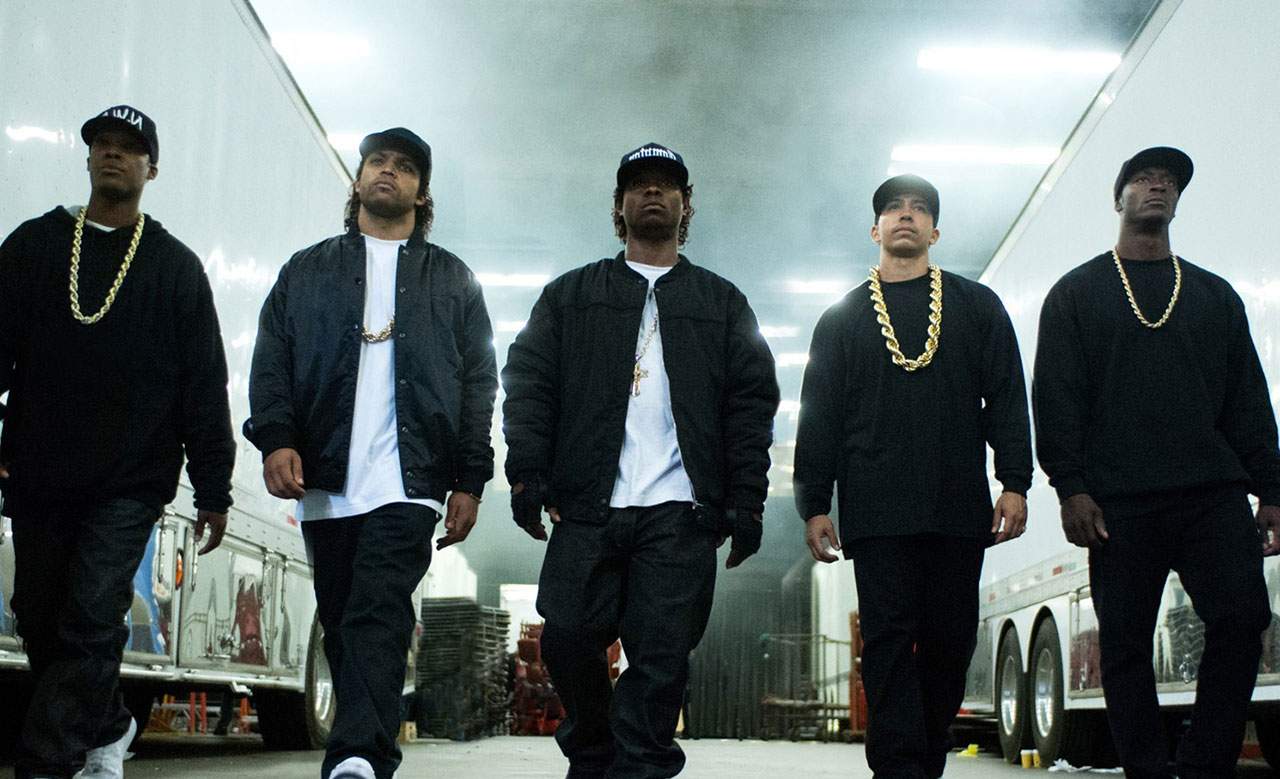Straight Outta Compton
A slick, provocative and timely biopic about one of hip hop's most iconic groups.
In partnership with
Overview
For more events like this including articles, news and reviews suited for the modern man, head to the LYNX Black Gentleman's Guide to Auckland.
“You are now about to witness the strength of street knowledge.”
So begins both the film and the song ‘Straight Outta Compton’, and it’s equal parts preview and warning. The ‘street knowledge’ of NWA’s leading trio — Dr Dre (played by Corey Hawkins), Ice Cube (O’Shea Jackson Jr, playing his real-life father) and Eazy-E (Jason Mitchell) — was an affront to the establishment, a threat, even, but also helped facilitate the group's rapid rise from neighbourhood group to musical ascendancy.
Acquired over two decades of daily exposure to gang violence, racial vilification and police persecution, it instilled in them a bravado, passion and unyielding determination that permitted neither retreat nor weakness. It also came at a price, however, because not all streets are the same, and when Crenshaw Boulevard became Rodeo Drive, the blinders and shortcomings of that knowledge became all too apparent. Straight Outta Compton, then, is not just an NWA biopic but a cautionary tale about loyalty, friendship and the corrosive effects of celebrity.
Directed by F. Gary Gray (The Italian Job), Straight Outta Compton doesn’t push the genre in any new directions but does a superb job of keeping the focus on the chemistry and appeal of its leading men. Its earliest scenes are easily its strongest, chronicling the group’s formation and revealing how the constant police harassment contributed to not just NWA’s message and appeal but also its most iconic song ('Fuck the Police'). In light of the shocking number of black deaths at the hands of police this year alone, it’s a tragically timeless sentiment that continues to resonate with an especial significance.
Hawkins, Mitchell and Jackson Jr put in excellent performances, with the latter's resemblance to his father so remarkable as to make his scenes feel more documentary than recreation. Paul Giamatti, too, is once again utterly engaging as their manager Jerry Heller, never quite allowing you the confidence to say whether he’s hero or villain.
Regrettably, most of the female performances are relegated to bare breasts and bouncing buttocks, with key figures like Michel’le and Tomica Woods-Wright given little to no attention, while Dre’s history of violence towards women is completely ignored. Still, a film can only cover so many bases, and Straight Outta Compton shouldn’t be faulted too heavily for electing to keep its focus on the band and its significance rather than the individual stories within.
Ice Cube once described NWA as journalists, reporting on a world that the mainstream media refused to. But in the end it was less what they said and more their preparedness to keep saying it as loudly and publicly as possible that made them such an important and ongoing musical force. Straight Outta Compton is a slick, provocative and timely film that absolutely warrants your viewing.






